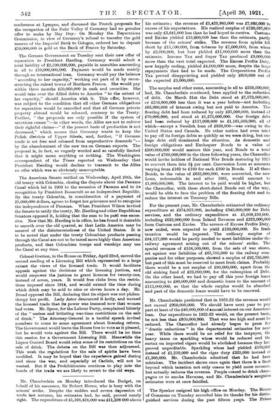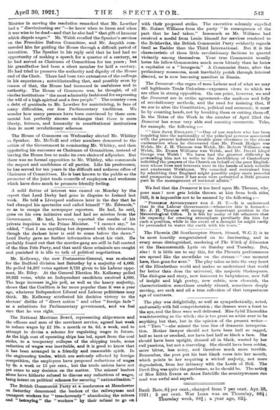The Speaker resigned his high office on Monday. The House
of Commons on Tuesday accorded him its thanks for his distin- guished services during the past fifteen years. The Prime Minister in moving the resolution remarked that Mr. Lowther had a " discriminating ear "—he knew when to listen and when it was wise to be deaf—and that he also had " that gift of humour which dispels anger." Mr. Walsh recalled the Speaker's services on the Franchise Reform Committee, and Mn Asquith com- mended him fer guiding the House through a difficult period of transition. The Speaker in his reply said that he had had no opportunity of making a speech for a quarter of a• century, as he had served as Chairman of Committees for ten years ; but his grandfather had been a silent member for half a century. He had tried to preserve the authority and dignity of the House and of the Chair. There had been two extensions of the suffrage in his experience ; notwithstanding that, and possibly even by reason of that, the House had increased in usefulness and in authority. The House of Commons was, he thought, of all similar institutions " the most admirably fashioned for expressing the will of a high-spirited and a free people." The country owes a debt of gratitude to Mr. Lowther for maintaining, in face of many difficulties, our fine Parliamentary traditions. We wonder how many persons have been convinced by these cere- monial but perfectly sincere exchanges that there is more liberty, fairness, and humanity in constitutional institutions than in most revolutionary schemes.



































 Previous page
Previous page